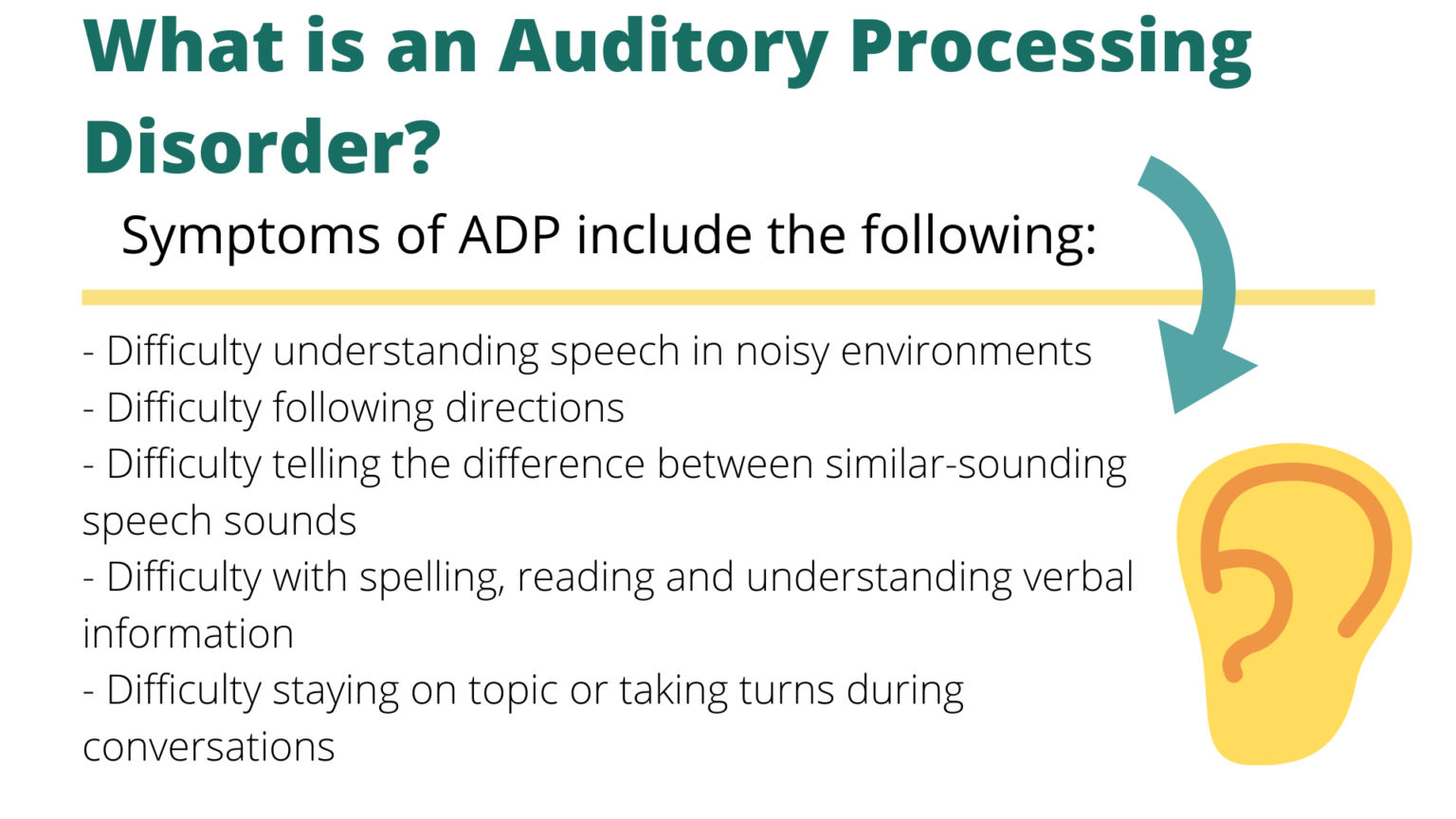

CAPD is not due to peripheral hearing loss, which includes conductive hearing loss (i.e., outer or middle ear), sensorineural hearing loss at the level of the cochlea or auditory nerve, including auditory neuropathy and synaptopathy (i.e., hidden hearing loss).CAPD may coexist with other disorders (e.g., attention-deficit/hyperactivity disorder, language impairment, and learning disability).CAPD may lead to or be associated with difficulties in higher order language, learning, and communication functions.Although sometimes difficult, careful differential diagnosis is important to the process of treatment planning. Terms include, but are not limited to, "auditory processing disorder," "(central) auditory processing disorder," "language processing disorder," and "auditory information processing disorder."ĪSHA uses the term Central Auditory Processing Disorder (CAPD) to refer to deficits in the neural processing of auditory information in the CANS not due to higher order language or cognition, as demonstrated by poor performance in one or more of the skills listed above (ASHA, 2005).
Auditory processing disorder adults professional#
Terms used to describe a processing disorder may vary based on the perspective of the professional describing the problem. Auditory performance with competing or degraded acoustic signals (including dichotic listening ASHA, 2005)Ĭentral Auditory Processing Disorder (CAPD).temporal resolution (e.g., temporal gap detection).Temporal aspects of audition, including.These mechanisms underlie the following skills: Medwetsky (2011) provides in-depth information on this topic.ĬAP consists of mechanisms that preserve, refine, analyze, modify, organize, and interpret information from the auditory periphery. Knowledge of the neuroanatomy and physiology of the central auditory nervous system is essential for understanding and interpreting underlying processes and deficits. Central Auditory Processing (CAP)Ĭentral auditory processing (CAP)-also seen in the literature as (central) auditory processing or auditory processing-is the perceptual processing of auditory information in the central auditory nervous system (CANS) and the neurobiological activity that underlies that processing and gives rise to electrophysiologic auditory potentials (American Speech-Language-Hearing Association, 2005). See the Central Auditory Processing Disorder Evidence Map for pertinent scientific evidence, expert opinion, and client/caregiver perspective. Content is relevant to both developmental and acquired CAPD.

doi:10.3766/jaaa.The scope of this page is central auditory processing disorder (CAPD) in children and adults. Impact of personal frequency modulation systems on behavioral and cortical auditory evoked potential measures of auditory processing and classroom listening in school-aged children with auditory processing disorder. Evaluating test data for the duration pattern test and pitch pattern test. Auditory symptoms and psychological characteristics in adults with auditory processing disorders. Undersea Hyperb Med: J Undersea Hyperb Med Soc. Central auditory processing disorders after mild traumatic brain injury. Santhanam P, Meehan A, Orrison WW, et al. Neural biomarkers for dyslexia, ADHD, and ADD in the auditory cortex of children.


Hearing aids if hearing loss is presentĪmerican Speech-Language-Hearing Association.Counseling or art/music therapy if depression, anxiety, or self-esteem issues are present.Having family, friends, and teachers make an effort to speak more slowly and loudly, use simple sentences, and repeat important information to make sure it's understood.Coping strategies such as making lists, avoiding learning or working environments with excessive background noise, lip reading, etc.FM listening devices that help the wearer understand speech in an environment where background noise is present.Environmental modifications, such as adding visual information or written instructions as a complement to verbal classroom instruction, placing a child's desk closer to the front of the classroom, etc.Brain training computer programs designed to help people with APD learn more effective ways to process language.Brain training techniques that rely on the brain's own ability to improve processing skills.Speech-language therapy with a focus on auditory training.


 0 kommentar(er)
0 kommentar(er)
